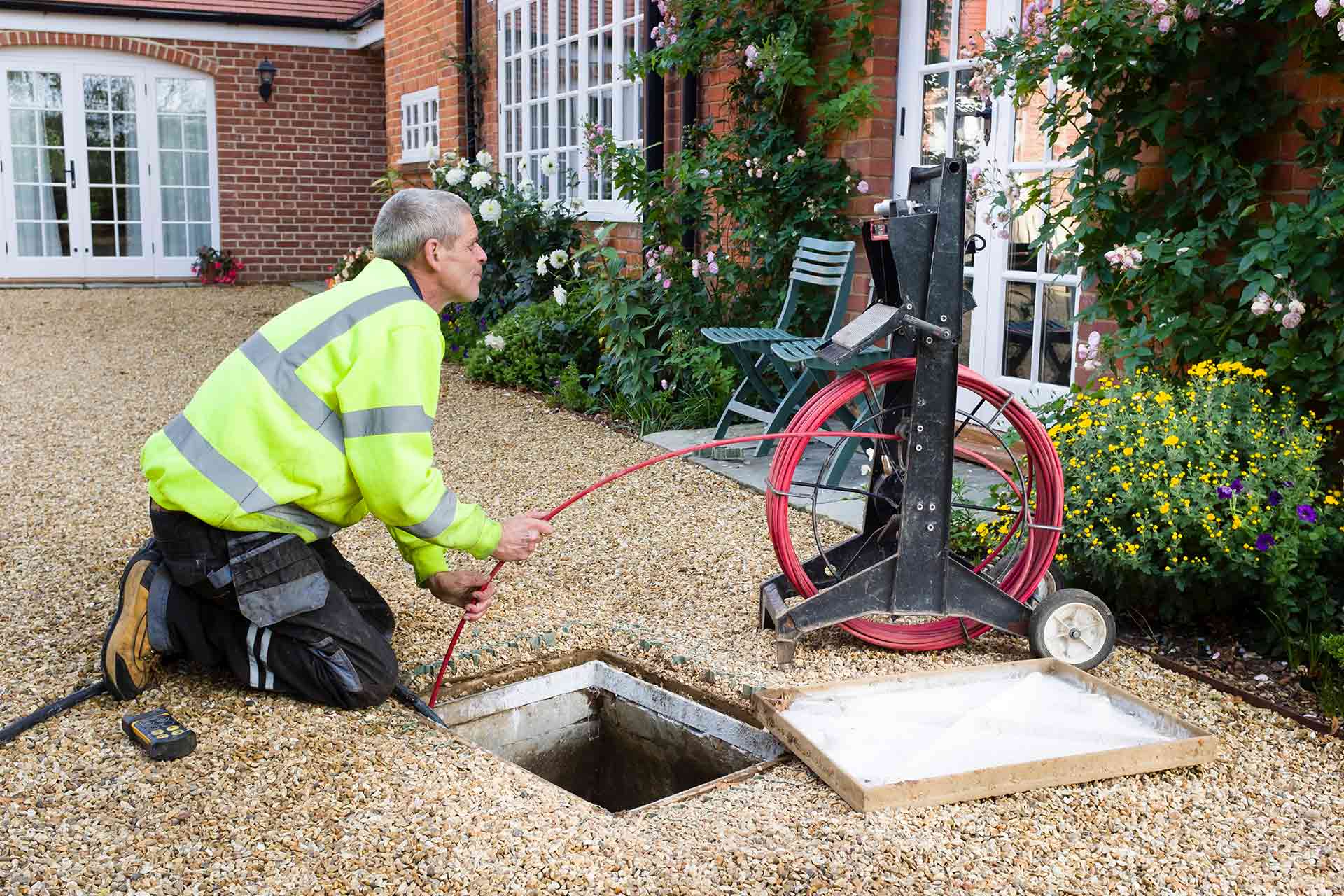Techniques for Tackling a Blocked Drain Prior to Reaching out to Expert Help
Techniques for Tackling a Blocked Drain Prior to Reaching out to Expert Help
Blog Article
Have you been searching for suggestions on What I learned from trying to deal with a clogged drain?

Introduction
Handling a blocked drain can be an aggravating experience, interrupting day-to-day activities and possibly causing damages to your property. Nevertheless, before reaching out to pipes professionals, there are steps you can require to address the concern yourself. In this guide, we'll explore DIY remedies and preventive measures to take on a blocked drain effectively.
Identifying the Issue
The initial step in resolving a blocked drain is acknowledging the indications. Slow-moving drainage, gurgling audios, foul odors emanating from drains, or water backing up prevail indicators of an obstructed drainpipe. Determining these indicators early can assist stop better complications.
Typical Root Causes Of Obstructed Drains
Recognizing the factors that contribute to drain clogs is crucial for effective resolution. Common wrongdoers include hair, soap scum, oil, food particles, and international objects like hygienic products or paper towels. Tree origins getting into underground pipelines can additionally cause substantial blockages.
DIY Solutions
For small clogs, several do it yourself solutions can be effective. Pouring boiling water down the drain can aid liquify grease and particles. Sodium bicarbonate and vinegar or a blend of salt and baking soft drink can serve as natural cleaners. Using a bettor or pipes snake to remove blockages is an additional alternative.
Tools and Equipment
Having the right tools accessible can make do it yourself drain cleaning a lot more effective. A plunger is a versatile tool for removing blockages in sinks, bathrooms, and showers. A pipes serpent or auger can get to deeper obstructions, while drainpipe cleansing chemicals can be made use of very carefully for stubborn clogs.
Preventive Measures
To prevent future obstructions, adopting preventive measures is critical. Install drain guards or strainers to capture hair and debris before they enter the pipes. Routinely flush drains with hot water to dissolve oil accumulation, and prevent taking care of grease or strong waste down the drain.
When to Call a Specialist
While DIY options can solve small clogs, particular indicators indicate the demand for professional help. Relentless blockages, foul odors regardless of cleaning up efforts, or several drains pipes backing up simultaneously are warnings that necessitate expert treatment.
Selecting the Right Pipes Service
When choosing a pipes service, take into consideration elements such as experience, licensing, and client testimonials. Pick a reputable plumbing technician with a track record of high quality craftsmanship and clear prices methods.
Expense Factors to consider
The price of expert drain cleaning company can vary depending upon the extent of the clog and the plumbing's prices. Demand quotes from several companies and ask about any type of surcharges to guarantee transparency and prevent surprises.
Security Measures
When trying do it yourself drainpipe cleaning, prioritize safety and security. Wear safety gloves and eyewear to avoid contact with dangerous chemicals or bacteria. Never blend different drain cleansing items, as this can create unsafe fumes.
Situation Studies
Real-life instances show the effectiveness of do it yourself remedies and the significance of timely expert intervention in dealing with drainpipe obstructions.
Conclusion
By adhering to the pointers outlined in this overview, you can successfully tackle blocked drains pipes and avoid future pipes concerns. Whether selecting DIY solutions or seeking professional assistance, timely action is vital to preserving a healthy plumbing system and preserving the integrity of your home.
How to Clear a Clogged Drain Yourself (And When to Call In the Professionals)
What Can Clog a Drain
Dirt Skin flakes Hair Grease Soap scum Food Offset pipes Tree roots Small objects Mineral buildup DIY Tricks to Unclog a Drain
You can fix this! Once you have identified the source of the clog (or have a vague idea), you can try one or a combination of these fixes in order to clear your plumbing.
Wire Hanger or Snake
Untangle and clear out hair from a drainpipe with a homemade snake. Use a straightened-out wire hanger with a 90-degree angle hook to locate the clog and drag out any unwanted material.
Remember not to push the clog further down to where the wire hanger cannot reach! If you need to follow up with a plunger, give it a try. Your efforts might be more successful after it’s been wire-snaked.
If you want to get fancy and don’t have a wire hanger to spare, head to the store and pick up a hand-operated drain snake. You can get one for $10-$30. It may save you the hassle, and provide additional length to reach deep into the clogged pipe.
Plunger
A cup plunger has a suction cup attached to a wooden handle. The rubber creates a seal around the drain, and increases the pressure force of the plunger.
Plunge for 30-second increments to loosen the clog. This may need to be repeated over the course of 15-20 minutes. Once plunged, run the water to flush the remaining material out of the drain.
Remember– never use a plunger if you have used a chemical drain cleaner. These chemicals can splash up from the force of the plunger and cause serious injury or burns.
Boiling Water
Hot water can sometimes break up materials into a flushable amount. Dirt, grease, and soap buildup requires heat in order to unstick from surfaces.
Take your kitchen kettle and heat your water to a boil. Once it reaches a rolling boil, pour it directly down the drain into the blockage. Carefully follow with plunging, if necessary.
Don’t worry if this takes more than one try! It can often take multiple kettles and repeated plunging in order to clear a particularly stubborn clog.
Chemical Drain Cleaner
As a last resort, pick up a bottle of chemical drain cleaner. Drain-cleaning chemicals are potent, and not very good for the environment.
You may need to wear protective eyewear in gloves before handling your bottle of chemical drain cleaner. Follow the instructions printed on the bottle, and flush with water as soon as the instructions allow. Do not follow with plunging.
Baking Soda and Vinegar
As a safer alternative to chemical drain cleaner, baking soda and vinegar can create a chemical reaction that clears tough clogs.
Combine one cup of cleaning vinegar with one cup of boiling water, and set aside. Once you have done this, pour half a cup of baking soda down the drain. Give the baking thirty seconds to settle and cover a large portion of the problem drain.
Following the baking soda, pour down your vinegar and hot water solution. Once the vinegar and baking soda combine, the mixture will bubble and fix. Let this reaction fizzle in the drain for about an hour.
After an hour, follow with a kettle’s worth of hot water. The heat and liquid should flush out any remaining material.
When to Call a Plumber
If your DIY attempts haven’t cleared your clog drain, it’s time to call in a professional. It’s not worth losing access to your kitchen sink or high-traffic bathroom. A clog in a vital area can keep you from the things you’d rather be doing, and derail your routine.
Anytime a clog is causing water to spread is a time to call in a plumbing service. What starts out as a little bit of water can quickly grow into serious, expensive water damage.
Additionally, a serious clog can result in burst pipes or serious leaks. Make sure you know when to take it seriously!
https://myguysnow.com/how-to-clear-a-clogged-drain-yourself-and-when-to-call-in-the-professionals/

Do you enjoy reading up on Tips for Dealing with Clogged Drains and Sewer Lines? Put a remark below. We will be happy to see your opinions about this posting. Hoping to see you back again later on. Do you know somebody else who is fascinated with the topic? Be sure promote it. Many thanks for your time. Don't hesitate to pay a visit to our site back soon.
Book Service Report this page